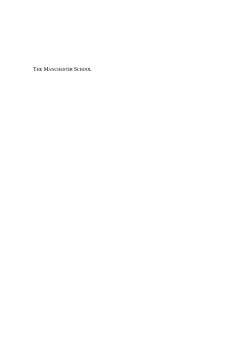
Additional Information
Book Details
Abstract
Pioneered by Max Gluckman to demonstrate the way in which social practice and structure together constitute and are themselves constituted by the situational flow of social life, the extended case method became diagnostic of the Manchester School of Social Anthropology. Anticipating practice theory, and implicitly politically charged, it was developed as a tool to bring into account what orthodox structural functionalism was ill-equipped to address, namely, problems such as change, conflict, deviance, and individual choice.
Edited by two students of Gluckman, the volume comprises reprinted pieces by Gluckman and his colleague Clyde Mitchell, a Coda by Mitchell’s student, Bruce Kapferer, contributions by Gluckman’s students and/or friends and colleagues, including Ronnie Frankenberg, Kapferer, Evens, Handelman, and Sally Falk Moore, as well as a number of contributions from other practitioners of the extended case. Apart from the reprinted pieces by Gluckman and Mitchell, all the contributions have been written for this volume. These essays, historical, theoretical, and ethnographical, serve to highlight and critically examine the fundamental features of the extended-case method, in order to advance its substantial, continuing merits.
“The book accomplishes admirably its stated aim, namely ‘to highlight and critically examine the fundamental features of the extended-case method, in order to advance its substantial, continuing merits’. Its editors and chapter contributors demonstrate that the extended-case method is more than a ‘method’, it is a sophisticated mode of research and analysis arising from the long-standing political, institutional and epistemological concerns of Gluckman and his students...This book is a timely addition to the ongoing rethinking of practice theory after Bourdieu… With its ethnographic grounding, attention to situated process, and stress on the latent potentialities of social interaction for the structuring of social life (cf. Giddens 1984), the renewal of this social anthropological tradition signaled by the present study has much to offer cultural anthropologists in the United States and elsewhere.” · Ethnos
... Everyone will welcome this renewal of the extended case / situational analysis approach. Recovering the original reasons for doing things that one otherwise takes for granted not only recovers an earlier richness and generosity of intellect but makes for a very spirited and reinvigorating contemporary exercise....this is an important enterprise in charting the development of anthropology, and indeed social science more broadly. · Marilyn Strathern, DBE, FBA, University of Cambridge
